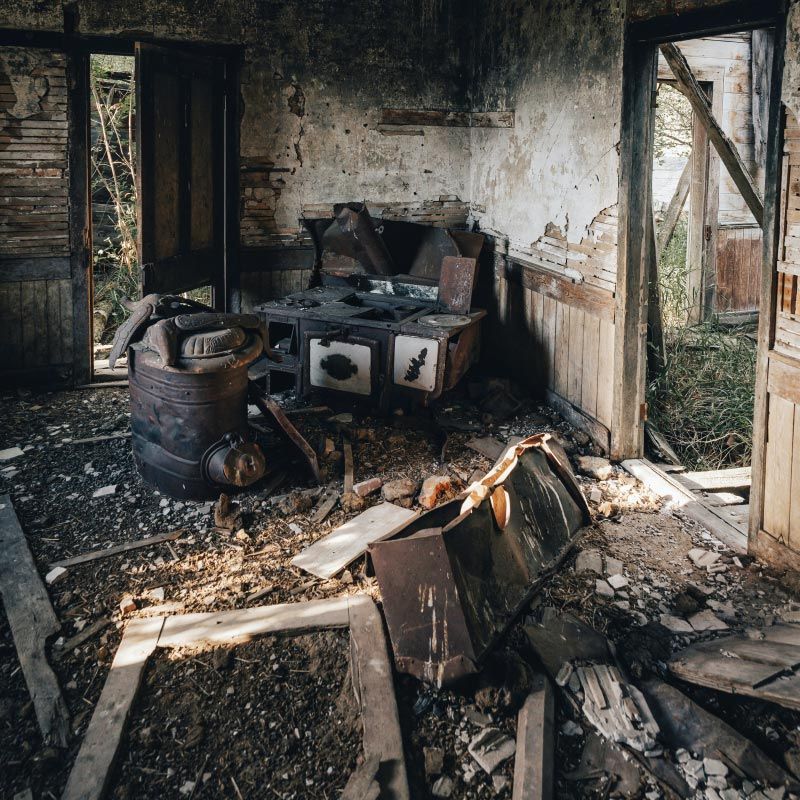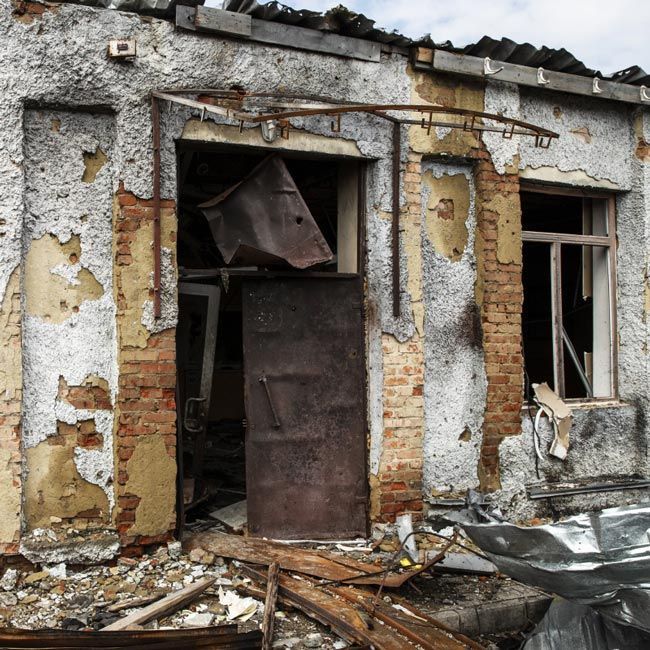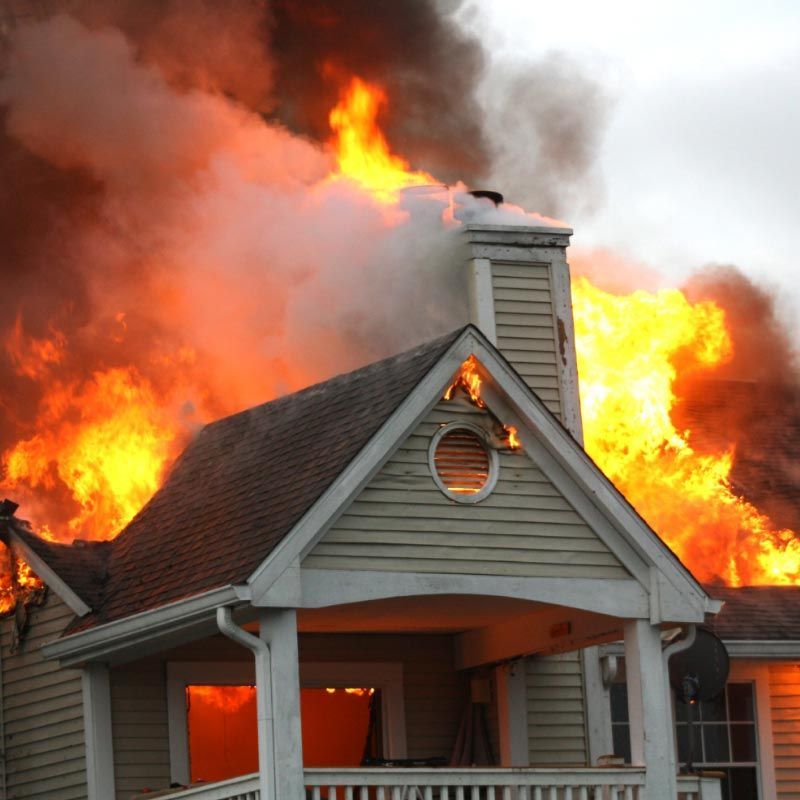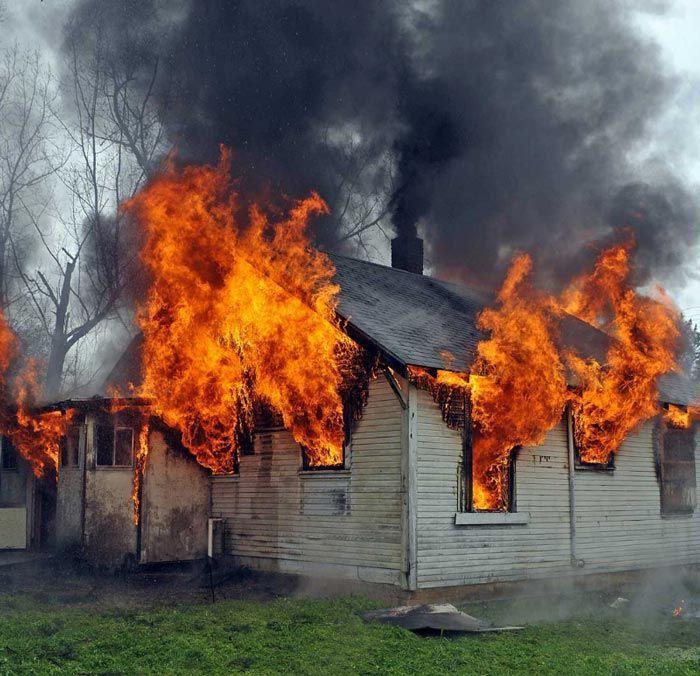What to Do if Your Tenant Accidentally Causes a Fire
Free Offer Form
We will get back to you as soon as possible.
Please try again later.
Selling a fire damaged house is possible, though may be difficult with a real estate agent. Selling as-is to a National cash buyer is one of the best options. Fill out the form below to get started and find out what your property is worth.
After calling 911 and evacuating the property, notify your insurance company and collaborate with your tenant.
A landlord's insurance typically covers accidental fire damage, liability, medical expenses, and third-party liability claims arising from the tenant's negligence.
However, your insurer may contact your tenant's insurance company or seek compensation if they lack coverage.
Accidents happen, but recovery becomes easier when both the landlord and tenant know their respective
responsibilities, insurance procedures, and legal implications.
Accidental Fire: What You Need to Know
First, let's discuss property values. Generally, there's a significant impact on property prices after a fire occurs.
However, the impact may vary depending on factors like the severity, cause of the fire, location, and property insurance coverage.
But more than the dollars' worth of damage, escaping the flame is ultimately a matter of life and death.
An article from the National Fire Prevention Association states, "You may have as little as two minutes (or even less) to safely escape a typical home fire from the time the smoke alarm sounds."
Therefore, preventing and addressing accidental fires starts with awareness.
Definition and Causes
Accidental fires, by definition, result from causes that do not involve deliberate human actions to ignite or propagate them, as opposed to arson.
After speaking with tenants and assessing the scene, your local fire department will likely determine the cause of the rental property fires.
The most common causes of rental property fire damage include:
- Electrical Malfunctions: Faulty wiring, overloaded circuits, or neglected appliances.
- Cooking Fires: Unattended cooking or flammable materials near open flames.
- Smoking Materials: Improperly extinguished cigarettes, cigars, or pipes.
- Negligence: Unattended candles, improper cigarette disposal, or children playing with fire.
- Natural Causes: Fires triggered by lightning strikes or wildfires.
If an accidental fire damages the apartment building or attached structures, a tenant's security deposit can't be used for expenses, and rent must still be paid.
Common Types: Grease Fire and Others
A common accidental fire caused by tenants is a rapid-spreading grease fire. This is especially common in rental properties and is classified as a Class K fire.
When things happen in the kitchen involving flammable liquids like grease, oils, and fats, you get a Class K flame.
Fires are categorized into five classes based on their fuel source:
- Class A: These are common fires ignited by wood, paper, fabric, and plastics.
- Class B: Involving flammable liquids and gasses like gasoline and propane.
- Class C: Common in offices with electrical equipment, like data centers.
- Class D: They involve metals like titanium.
- Class K: Typically fueled by cooking oils
Can I Sell a Fire Damaged House National?
Yes. You can sell a fire-damaged house. However, it may be harder to sell in the local National real estate market in as-is condition. You would have to make repairs and possibly rebuild most parts of your house before a buyer takes interest in the property. Your best option when selling a fire-damaged house is a cash buyer. They buy burned houses as-is so you don't need to spend money on repairs. They'll handle all the cleanups and renovations for you, however, expect that their offer may be below the cash value of your property.
Legal Implications
The legal implications of an accidental fire can vary depending on the cause. Tenants are usually responsible, but it may also be caused by a landlord's negligence.
Just as disclosing fire damage during a home sale is legally required, there are also specific laws governing accidental fires that vary across states.
Depending on the fire department's report, you may need to determine liability insurance claims, possible legal consequences, and financial responsibilities.
Tenant Responsibilities and Obligations
Tenants need to follow the rental agreement both parties have signed.
In case of fire damage, they might have to pay for the damages they cause, including property repairs and replacements—depending on their lease agreement and state laws.
Depending on the renters' insurance policy, they may also cover third-party property damages.
It's best to get insurance before renting a property. This can help cover the costs of any liabilities, damages, and the loss of personal belongings.
Like landlord insurance, it serves as a tenant's legal and financial safety net in case of fire-related liability claims.
Landlord Responsibilities and Rights
The landlord is responsible for fixing structural damages and making the property habitable—meeting all safety codes and regulations imposed by the local fire department.
However, a landlord's responsibility depends on the cause of the fire, and this will also determine if their landlord insurance will cover the repair costs.
If tenants find that a landlord's negligence causes a fire, the landlord may be liable for the tenant's inconvenience, damaged personal property, lost wages, and temporary rental payment.
The landlord's insurance will cover the costs if it's due to faulty structural elements.
If tenants caused the fire, the insurance company may pursue their renter's insurance or seek compensation if they lack rental insurance coverage.
Jurisdiction-Specific Laws: California and Beyond
Additional fire accident-related laws depend on the city or county where the rented property is located.
In California, for instance, all property owners should install smoke alarms.
The smoke alarm law requirements vary depending on the rental property or leasehold estate type, how many units it has, and how tall it is.
Meanwhile, New York has a law compensating police officers and firefighters who're injured or killed due to someone else's actions, like negligence or intentional harm.
They or their families can seek compensation from that person or entity.
Insurance Coverage for Fires
If a rental property fire is intentionally set, the property damage usually isn't covered by a tenant's insurance. Many landlords' insurance may cover fire damage in rental properties, but there could be an exclusion clause for fires caused by tenants.
Therefore, how insurance payouts work after house fires depends on the situation or insurance company.
Contact an adjuster for help when handling house fire insurance claims to maximize your insurance claim.
What Renters Insurance Covers
It typically covers damage to the tenant's personal property, liability for accidents, and additional living expenses if the rental unit becomes uninhabitable due to fire.
It can also provide coverage for theft, water damage, certain natural disasters, bodily injuries, and more in a rented property.
Your insurance policy's loss of use coverage may provide funds for temporary housing while the rental property or new housing is rebuilt after the tragedy.
The Process of Selling Fire Damaged Property to a Cash Buyer
The process of getting a cash offer for a burned house is pretty much the same as any property type. However, it is best if you can contact your home insurance company first before getting an offer for your house after a fire. Your National home insurance company can help assess the extent of the fire damage as well as the repair costs. This can help you decide whether selling a house as-is to a cash buyer is really the right path to take. Once you have decided that you really want to get a cash offer, here are the next steps you should take.
Important note: This doesn't apply to all cash buying companies.
1. Request a Cash Offer
You can easily find cash buyers in your National area by searching online. Once you found a reputable cash buyer, head over to their website to fill out a form or give them a call to ask for a cash offer. Most cash buyers and real estate investors give no-obligation cash offers so you can still ask other cash buying companies how much they can buy your fire-damaged property. If you are unsure about the background of a cash buyer, you can always ask them for proof of their source of funds.
2. Welcome the Cash Buyer into Your Home
The cash buyer or real estate investor may want to check your fire-damaged property for the repairs and improvements it needs, especially its roofing, walls, foundation, etc. You won't have to pay for these repairs when selling a National house to them, but experienced home buyers or real estate investors consider repair costs to make an accurate cash offer.
3. Review the Contract and Sign
Once you accept the cash buyer's offer on your fire-damaged home, they would furnish a sales contract and send it to you electronically. You will be given time to go over the terms and ask questions. After everything is settled, sign the contract to make the deal with the National cash home buyer official.
4. Closing
During closing, expect less paperwork since there are no lenders involved. After you have signed the minimal necessary paperwork and the National deed is transferred to the cash buyer's name, you'll get your cash in your bank account. If you aren't confident attending the closing by yourself, bring a real estate attorney with you.
5. Set Your Preferred Day to Move-Out
If the property has minor fire damage and you are still living in it, communicate to the cash home buyer when you want to move out. This is also a good time to ask for a sale-leaseback agreement if you don't have a place to crash on while you are still looking for a new National home.
What Homeowner's Insurance Covers
Landlords should have homeowner's insurance, which can cover structural damage to the property caused by fire.
This insurance includes assistance for the landlord's repair efforts, including the cost of tearing down, cleaning up, and rebuilding the main structure and outbuildings.
Liability coverage is also part of the package. This means it will cover medical and legal liability costs if someone gets hurt within your property premises.
The Risks of Not Having a Renter's Insurance
Tenants who do not have renters insurance are at risk of shouldering the financial burden of replacing their damaged possessions and potential liability claims.
Your belongings may also be covered by such insurance claims if they're damaged or stolen.
For instance, if a blaze wrecks your belongings, you'll have to cover the repair and replacement costs out of your own pocket.
Worse, if you lack insurance, the property owner may even resort to evicting you.
Most landlords often ask tenants to get their own insurance to protect themselves. This insurance covers the tenant's responsibility for property damage, belongings, and the landlord's deductible.
Frequently Asked Questions
Continue reading to learn more about dealing with an accidental fire caused by tenants.
What if a Tenant Causes a Cooking-Related Fire in the Kitchen?
If there's a kitchen fire, act fast and use a fire extinguisher or call the fire department.
Fires related to cooking are quite frequent. However, not all kitchen or rental property fires are caused by tenant negligence.
If the property owner fails to repair a known problem with the stove, they may also be responsible for the damage.
Who Is Responsible for the Damage in Case of a Fire: Landlord or Tenant?
When a rental property is completely destroyed due to tenant negligence, the party at fault is liable for rental property fire damage.
However, the responsibilities of landlords after a fire include covering the costs for structural repairs and damages, regardless of how the fire started.
Rental property owners may also need to assist tenants in finding new housing.
The landlord pays for relocating tenants upfront and may later be reimbursed by the insurance companies after the claim is complete.
That's why, besides having reasonable rental agreements or lease provisions, it helps to have a reliable insurance company.
Does Renters Insurance Cover the Damage Caused by a Fire?
Yes, renters insurance typically covers the damage caused by a rental property fire. This holds regardless of how the fire started.
Insurance companies may cover damage to your belongings, whether your clothing, furniture, electronics, or rental payments for temporary housing—depending on the renter's policy coverage.
Tenant's insurance may also provide liability coverage. This covers the cost of legal fees and damages if the tenant is found legally responsible for a covered event.
What Happens if a Tenant Causes a Fire Without Having Renters Insurance?
You have lost everything in the flame and have no means to replace it.
Tenants without insurance may face financial hardships when replacing tenant's possessions.
A landlord insurance company may take legal action against the tenant to seek compensation for the flame-related damages.
Can a Landlord Sue a Tenant for Accidental Fire Damage?
Yes, a landlord can sue a tenant for accidental damage if the fire department proves negligence or code violations.
If your actions caused the incident, you will cover certain costs and responsibilities that the accidental fire caused.
Legal counsel or a lawyer is often necessary, but remember to also do your own investigation for what caused the fire.
Conclusion
If you or your tenant lack insurance, you both may have to pay for damages out of your pocket.
Moreover, damage caused by a fire can be extensive, and hiring fire restoration companies or finding new housing can be expensive.
Restoring the rental property to a habitable condition will take time, so landlords and tenants should prioritize insurance on top of maintaining property safety and following lease terms.
Understanding tenant responsibilities, landlord rights, rental insurance coverage, and local laws answers what to do when accidental fires happen.
National Resources
- Selling a Fire Damaged House National
- Selling Inherited Property National
- Selling a House in Probate National
- How to Sell a House by Owner National
- How to Sell Rental Property National
- Stop Foreclosure National
- Selling a House during Divorce National
- How to Sell a Hoarder House National
- Can You Sell a Condemned House National?
- Can You Sell a House in Foreclosure National?
- How to Sell Rental Property with Tenants National
- Taxes on Selling a House National
Free Offer Form
We will get back to you as soon as possible.
Please try again later.
Author: Chris Charles
We buy fire damaged houses because we like taking on the challenge and making a win win for sellers looking to sell. We work with our partners nationwide and are experienced in dealing with the city if its already been condemned. Request a cash offer to have a chat with us today.
Sell Fire Damaged House for Cash Quick
Sell Your House Fast, To A Legitimate House Buying Company You Can Count On. ✔️ Free, Easy & ✔️ No Pressure Process. Find Out How We Buy Houses!
Sell Fire Damage House in California
Sell Fire Damaged House in Ohio
Sell Fire Damaged House In North Carolina
Sell Fire Damaged House In Michigan
Sell Fire Damaged House In Massachusetts
Sell Fire Damaged House In Colorado
Sell Fire Damaged House In Minnesota
Sell Fire Damaged House In South Carolina
Sell Fire Damaged House In Alabama
Sell Fire Damaged House In Louisiana
Sell Fire Damaged House In New Hampshire
Sell Fire Damaged House In Maine
Sell Fire Damage House in Texas
Sell Fire Damaged House in Florida
Sell Fire Damaged House In New Jersey
Sell Fire Damaged House In Virginia
Sell Fire Damaged House In Indiana
Sell Fire Damaged House In Kentucky
Sell Fire Damaged House In Oregon
Sell Fire Damaged House In Oklahoma
Sell Fire Damaged House In Connecticut
Sell Fire Damaged House In Utah
Sell Fire Damaged House In Rhode Island
Sell Fire Damaged House In Delaware
Sell Fire Damaged House in Pennsylvania
Sell Fire Damaged House in New York
Sell Fire Damaged House In Washington
Sell Fire Damaged House In Arizona
Sell Fire Damaged House In Missouri
Sell Fire Damaged House In Nevada
Sell Fire Damaged House In Iowa
Sell Fire Damaged House In Arkansas
Sell Fire Damaged House In Mississippi
Sell Fire Damaged House In Kansas
Sell Fire Damaged House In North Dakota
Sell Fire Damaged House In Alaska
Sell Fire Damaged House in Georgia
Sell Fire Damaged House in Illinois
Sell Fire Damaged House In Tennessee
Sell Fire Damaged House In Maryland
Sell Fire Damaged House In Wisconsin
Sell Fire Damaged House In New Mexico
Sell Fire Damaged House In Idaho
Sell Fire Damaged House In Nebraska
Sell Fire Damaged House In West Virginia
Sell Fire Damaged House In Hawaii
Sell Fire Damaged House In Vermont






